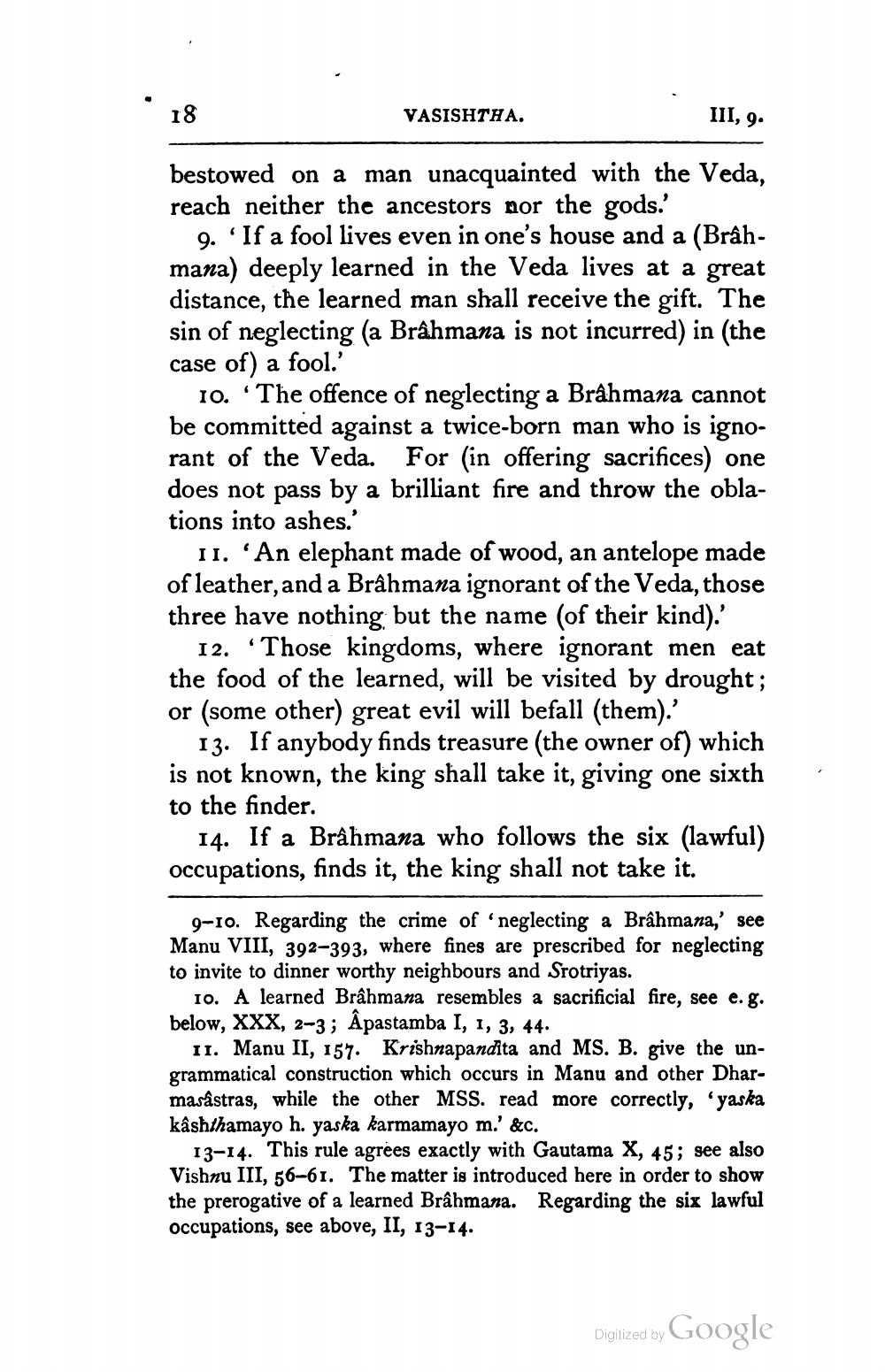________________
VASISHTHA.
III, 9.
bestowed on a man unacquainted with the Veda, reach neither the ancestors nor the gods.'
9. 'If a fool lives even in one's house and a (Brâhmana) deeply learned in the Veda lives at a great distance, the learned man shall receive the gift. The sin of neglecting (a Brâhmana is not incurred) in (the case of) a fool.
10. “The offence of neglecting a Brahmana cannot be committed against a twice-born man who is ignorant of the Veda. For (in offering sacrifices) one does not pass by a brilliant fire and throw the oblations into ashes.'
11. 'An elephant made of wood, an antelope made of leather, and a Brâhmana ignorant of the Veda, those three have nothing but the name (of their kind).'
12. "Those kingdoms, where ignorant men eat the food of the learned, will be visited by drought; or (some other great evil will befall (them).'
13. If anybody finds treasure (the owner of) which is not known, the king shall take it, giving one sixth to the finder.
14. If a Brâhmana who follows the six (lawful) occupations, finds it, the king shall not take it.
9-10. Regarding the crime of 'neglecting a Brâhmana,' see Manu VIII, 392-393, where fines are prescribed for neglecting to invite to dinner worthy neighbours and Srotriyas.
10. A learned Brâhmana resembles a sacrificial fire, see e.g. below, XXX, 2-3; Âpastamba I, 1, 3, 44
11. Manu II, 157. Krishnapandita and MS. B. give the ungrammatical construction which occurs in Manu and other Dharmasastras, while the other MSS. read more correctly, yaska kâshthamayo h. yaska karmamayo m.' &c.
13-14. This rule agrees exactly with Gautama X, 45; see also Vishnu III, 56-61. The matter is introduced here in order to show the prerogative of a learned Brâhmana. Regarding the six lawful occupations, see above, II, 13-14.
Digitized by Google




